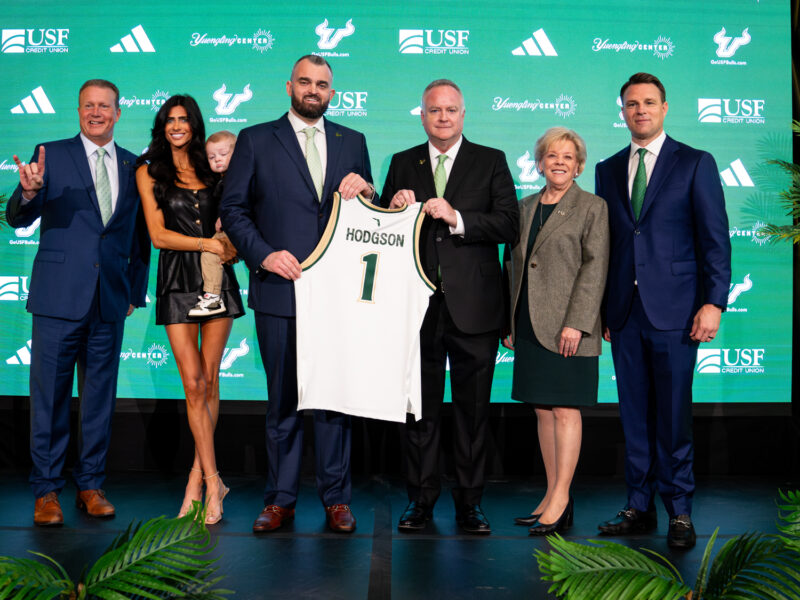There are 1,785 parking spaces on the USF St. Petersburg premises – but students have found locating a spot consistently difficult since the start of school.
To get to morning classes on time, sophomore Jerry Cano, 19, has had to park in a neighborhood three blocks away. He usually spends 15 minutes scoping out the parking garage before leaving to find a spot elsewhere.
“People literally jam their car in a spot sideways so you can’t park,” said Cano. “You eventually leave and they have the spot to themselves. I paid a year parking pass for no parking at all.”
Cano said the garage is unsafe and “crazy,” with cars speeding while students are walking to and from their cars.
Students have also brought up the financial aspect of the issue, claiming the price of a parking permit is not worth the wait.
Level 1 of the parking garage is reserved for gold permits, which are purchased by staff for $431. Levels 2-5 are reserved for green permits which are open to commuter students (semester: $88; annual: $173) and staff (semester: $129; annual: $256). On-campus residents can only park on levels 6-7 (semester: $118; annual: $232). The motorcycle/scooter annual permits cost $58. Students and staff can also purchase monthly permits for $49.
Shauntavius Prince, a 20-year-old junior, said she was excited to get an apartment off campus and thought commuting would be considerably cheaper, until she found out how much it cost.
“The garage is so small and if it’s full, you have to park behind the waterfront area,” Prince said. “But the most outrageous thing to me is the price. My car payment is $273. My car insurance is $134. I pay $3000 in tuition. And for [about] three months, parking is $88. What exactly are we paying for?”
Students are paying for parking services.
Since Florida does not offer funding for university parking programs, the Parking Services Department is considered an auxiliary, or self-supporting, entity on campus.
Purchasing and Parking Services Manager Bill Benjamin said all money generated from parking permits, citations and events goes toward the total parking revenue.
“[Funds] are paid out as an expense for permit inventory, parking construction, parking improvements, maintenance of the parking garage and surface parking lots, parking facility debt service payments, staffing and operating costs for the department,” Benjamin said.
After those expenditures are paid off, remaining funds are reserved for future parking needs. This includes expansion, facility construction, parking lots and improvements.
According to Benjamin, these services must be paid for with parking funds.
According to Parking Services, the university has administered approximately 2,569 parking permits to students and staff to date. Commuters account for the bulk with 1,605 permits sold. The rest consist of 369 resident, 376 non-gold staff, 204 gold staff and 15 motorcycles permits.
2,569 parking permits and 1,785 spots.
There is no current information from the university regarding plans to increase parking space on campus.
As per the 20/20 Strategic Plan, the university is aiming for 10,000 students in 10 years. Without swift accommodation for these additional students, the parking situation may only get worse.


